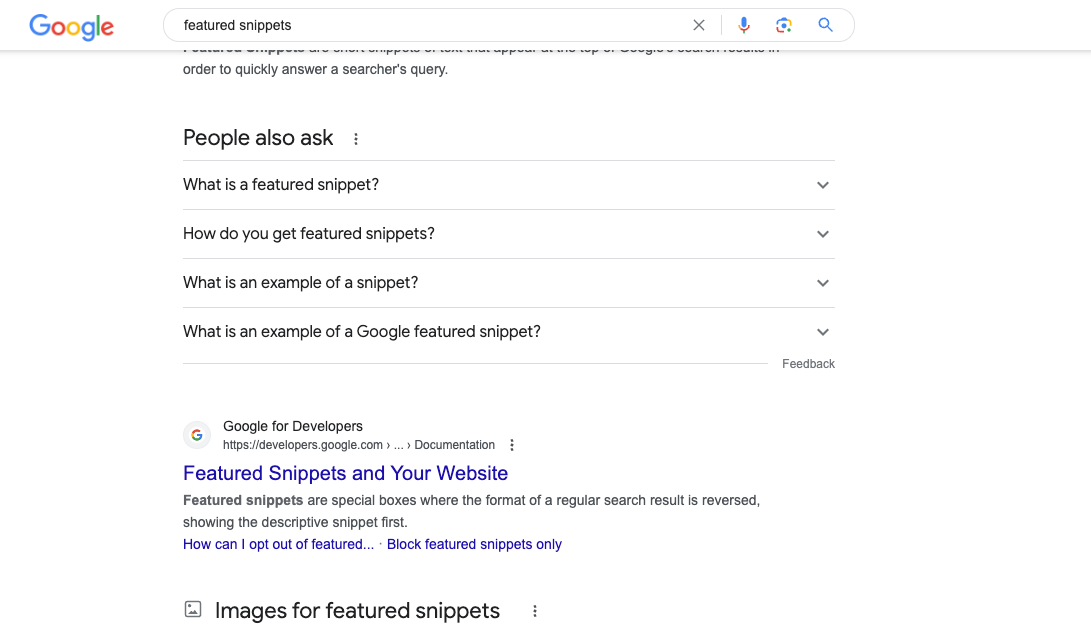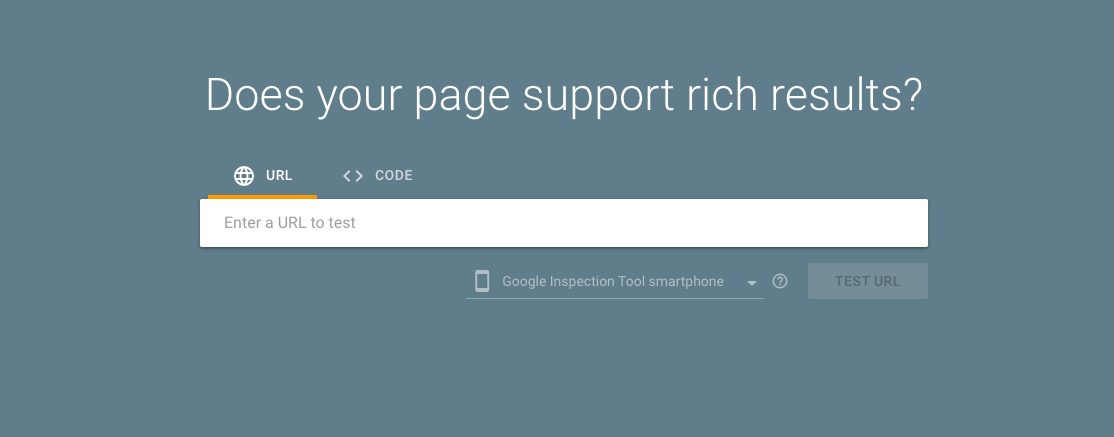Rules Of Thumb For On-Page SEO

On-page SEO, also sometimes called on-site SEO is the most important part of your organic search strategy. On-site SEO is precisely optimising the elements within your website in order to help search engines understand and rank your content. And, it is also exactly where you need to think for users as well.
Search engines look for relevance in your content through these on-page SEO factors and it’s crucial to make our website optimised for these factors if we are to rank on the organic search results. And, on the other hand, users are also looking for relevant content and web pages to answer their queries and fulfil their needs.
While on-page SEO starts by finding out keywords your users use to search for your services in the search engines but it is no more just about the keywords and headings. On-page SEO focuses on all aspects of the webpage including the overall content, user experience and also the technical implementations. These all combined form an on-page strategy.
Search Engine Optimisation is a very vast domain. Several areas come under this domain. These include but are not limited to technical SEO, link building, local SEO, and keyword research. However, the most important yet the most difficult to handle is on-page SEO. Businesses and web developers often find it hard to work on it.
As is evident from the name, on-page optimisation includes things that happen on one particular web page. These things include content as well as HTML code.
Most factors related to SEO are controlled by forces other than you. However, one good thing about on-page SEO is that it is entirely under the control of the business.
Table of Contents
How to optimise for on-page SEO?
Optimising for on-page SEO can be tricky but you can easily manage and benefit from it by sticking by the following rules of thumb I’ll discuss below. There’s no one single rule or formula to making your SEO efforts work, it is more about contextualising it for your website, business and strategies. Some strategies or tactics perfectly work for one website may not work for another.
Having said that, these are some of the common tactics you can use on your website in your own way to enhance your SEO performance. But to do this, you need to understand how on-page SEO is enhanced by using these tips and I will help you do just that.
Write SEO-Optimised Articles
Writing SEO-optimised articles is the first implementation step. Your content is all that your website visitors are looking for. Ultimately, a good information piece, article or any form of content is the goal of most website visitors. So, search engines like Google reward the websites or web pages that post quality content to keep the users engaged.
In terms of SEO analytics, writing SEO-optimised articles = more engagement time/session durations + more conversions + high CTR + decreased bounce rates. If you have a high bounce rate, low or no conversions, low CTR and low session duration, you know where to improve: On-page SEO. Make your Title, Meta descriptions, headings and your overall content better.
To give you a context, if you have pages ranking on top spots with high impressions but low clicks chances are your Title and meta descriptions appearing in the SERPs are not driving visitors to click on your website link and they can be improved.
According to the Search Quality Rating Guidelines, Google very overtly uses a Needs Met rating. It sees how well the content of a page meets the needs of the visitors. Google’s most favourite pages are those that can satisfy the visitors completely; the pages that do not compromise on visitor satisfaction at all.
If you intend to become Google’s favourite, you got to meet your visitors’ needs completely.
Any idea how to do so?
No worries! We at WP Creative have been helping out our clients with our SEO services in Sydney.
Keywords Research
What would we do without keyword research? Keywords are a lifeline to our SEO strategies after all, all that matters is keyword rankings and we align our strategy with our keywords. This is why keyword research is important. Keyword research gives us the direction on which keywords to target and which not to.
You should plan your keyword strategy in a way that is aligned with the business goals and the keyword rankings should be a realistic plan rather than a shooting for the moon. Look out for whom you are competing against, it will be a lot easier to filter out keywords that way.
Strategic Keywords Placement
You must have heard about keyword placement for on-page optimisation and many times it has been mistranslated into keyword stuffing. You should strategically place your keywords in certain parts of your website content so that it helps search engines understand the context of your content. It is recommended that you place target keywords and their related keywords in the following:
- First 100 words of your content
- Headings
- Meta descriptions
- URL
- Title
- Ending paragraph
But the more important part is getting them into context and placing them naturally.
Optimise Page Title
This is one thing that businesses usually miss out on. They optimise their content but forget to do the same for the page title. The page title can play a huge role in on-page optimisation.
There are several ways that you can use to optimise your page title. Firstly you should include your main keyword at the beginning of the title. Research shows that words that appear at the start of the title play a greater role in determining how many people click on the page. Secondly, you should ensure that your page title is the only thing on the page that has a <h2> tag. Thirdly, make sure that your title has a maximum of 60 characters. The rationale behind this is that the Google search engine only displays a certain width of the title. If your page title is too long, Google will not display it completely.
Do you think all this is too mind-boggling for you to handle?
That is actually pretty normal. When it comes to Search Engine Optimisation, businesses often find themselves lost. If you are in a similar situation, leave a message below, and our representative will get back to you!
Optimise Permalinks
The permalink is another one of the most important aspects of a website, yet most people ignore it. It is quite beneficial for your SEO ranking. Hence, you should work on optimising your permalink.
Permalink tells the visitors what the topic of the page is. That is why you should make sure that it has your primary keyword. Moreover, your permalink should be short and crisp. It should ideally have 3-5 words so that people can easily remember it.

Featured Snippets and Structured Data
Optimise your content for featured snippets. Featured snippets are the contents that appear at the top to answer your search queries. One of the best examples is the People Also Ask section of Google Search. For your content to appear as a featured snippet, you should include a set of FAQs relevant to your content in the proper format of Q&A.

You can also use the features given by SEO tools to implement these. And, similar is the case for structured data. These are the data included in the content to make it easier for search engines to understand your content. For example, if your content is a product and is out of stock, you can use structured data to communicate that with the search engines.

Internal Linking
Internal links are so much important to SEO. It is a powerful SEO technique that you can use to indicate which of your content is important, relevant and related. Internal links along with the anchor texts can mean a lot to search engines.
One of the best examples is using the pillar cluster model for content structuring. When you write a page about Digital marketing, you link to this main content from your other cluster pages or topics like Social media marketing, Technical SEO or even Backlinks with relevant anchor text. This is used to communicate that Digital marketing is a pillar topic and others are supporting blogs. This way you can communicate your credibility and authority.
Backlinks are the currency of search engines. Google uses them to gauge the popularity and reliability of the content. It gives ranking to the websites based on the quality of links used. Amongst all other criteria used for rankings, links are one of the most essential ones.
Hence, you need to ensure that your content is linkable. You can do so by making sure that your content is not hidden and is rather as visible as possible.

Demonstrate High Levels of E-A-T
E-A-T refers to Expertise, Authoritativeness, and Trustworthiness. These are the three key factors that Google looks at while gauging the quality of a website.
All three of these factors are mostly demonstrated in the content of the website. Businesses should, therefore, ensure that their web content is well-phrased, up-to-date, and thorough. Google has recently introduced an algorithm update that further focuses on E-A-T indicators. Hence, now, the significance of E-A-T is way more than ever before!
Images Optimisations
Images also play a huge role in SEO, both in the case of on-page SEO and user experience/engagement or page speed. Since Google crawlers can not read your images or comprehend those images as we do, it’s our job as SEO professionals to let search engines know about the images. And how do we do that? By adding alt texts, relevant names and descriptions.
Learn how to optimise your images and make them responsive.
Use On-Page SEO Plugins
All of the above on-page optimisations can be assisted by using WordPress SEO plugins. Plugins like RankMath, Yoast or All in One SEO help us in achieving our on-page optimisation goals. It is not obviously a compulsion but it is highly recommended. Why? Because we all are humans, can miss out on things and more importantly we can (in most cases) benefit from an assistant.
SEO plugins in WordPress can help you to stick to the basics of on-page SEO tactics. These tools monitor the number of times you have used your focused keywords, if your title has a keyword, or if you have internal links. On top of that, they give you suggestions based on your focus keyword and the content.
Social Sharing and Commenting
In today’s day and age, one cannot merely downplay the importance of social media. These sites have become as important as search engines. When ranking websites, search engines also take into account your website’s presence on social media. They can do so by taking into account the percentage of website visitors who shared your website on social media.
Hence, turning your visitors into a community is very beneficial for your on-page SEO. You can do so by taking several measures. First and foremost, you should include sharing options. According to research, prominent sharing buttons increase sharing by 700%. Secondly, make use of social markup. It ensures that social media posts have the correct title, image, and content.
Lastly, encourage your website visitors to comment on your blog. You can do so by adding CTAs in your blogs that ask your visitors to leave a comment below. However, you need to realise that mere comments are not enough. You also need to engage in the discussion. Google has confessed that websites that have an active commenting culture are given a higher search engine ranking.
Summary
SEO is a hugely sought-after thing. And why should it not be so? After all, it increases the chance of your web page appearing in search engine results and you can capitalise on these appearances to skyrocket your business. You can easily make use of on-page SEO as it is totally under your control.
Do you feel that you lack the expertise to do so?
That is not a problem at all!
A lot of our clients, though proficient in their core business practices, feel helpless and lost when it comes to managing their WordPress websites for SEO. That is precisely where we come to their rescue!
If you want us to become part of our SEO Sydney clientele, send us a message.
